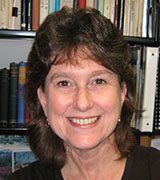
Simon Wiesenthal Center, Operation Last Chance II, Jerusalem, Israel
Operation Last Chance has launched a new campaign in major German cities to bring Nazi war criminals to justice. Approximately two thousand posters publicizing the initiative were displayed on walls, billboards, and transit stops in Berlin, Hamburg, and Cologne for two to three weeks beginning in July 2013. The posters were of a black-and-white photograph of the railroad entrance to the Birkenau death camp and stated that it is “Late, but not too late” for justice. The poster text declared: “Millions of innocents were murdered by Nazi war criminals. Some of the perpetrators are free and alive. Help us to bring them before a court.” The poster campaign generated a wealth of information. Operation Last Chance offers monetary rewards of as much as $33,000 for information resulting in the capture, conviction, and incarceration of Nazi war criminals. Thirty-one Auschwitz guards are currently alive and living in Germany while another seven are living in other countries. Prior to the poster campaign, Operation Last Chance had received the names of 660 suspects, 106 of whom have been submitted to prosecutors for trial. Operation Last Chance first launched in 2002. The initiative was conceived by Aryeh Rubin, significantly funded by Targum Shlishi, and coordinated by the Simon Wiesenthal Center’s Israel office.

Florida International University, Material and Visual Culture of the Holocaust Lecture Series, Miami, FL
This series of lectures at Florida International University during the spring semester, organized by FIU’s Jewish Studies Program, is supported in part by Targum Shlishi. The lectures, which are free and open to the public, feature national and international scholars on topics ranging from branding and the Nazis to photography during the Holocaust. The lectures are held in conjunction with the exhibition Race and Visual Culture Under National Socialism in The Wolfsonian Teaching Gallery at the Frost Art Museum, guest curated by Oren Baruch Stier, director of the Jewish Studies Program and associate professor of religious studies at FIU. The exhibition explores ways in which the Nazi Party in Germany promoted the idea of a racially pure nation through the use of visual objects produced during the Third Reich.

In Former Times: A Twentieth Century Jewish Life (working title), Meri-Jane Rochelson
Targum Shlishi helped support research for Meri-Jane Rochelson’s book in progress, a work that combines elements of her father’s memoir with commentary informed by extensive research. As she explains, “my father’s story is worth telling and publishing, and it resonates beyond his own experience to the twentieth-century history of Jewish in Lithuania.” Eli G. Rochelson was born in Kovno, Lithuania, in 1907, received a medical degree, and was imprisoned in the Kovno Ghetto with his wife and son until the ghetto was liquidated in July 1944. He was sent to Dachau along with his son, while his wife was sent to Stutthof. He survived, but his wife and child did not. He made his way to the U.S., began a new family, and worked as a physician in Brooklyn until his death in 1984. His audiotaped memoir forms the core of the book; Meri-Jane augments his account with commentary that incorporates material from family letters and other documentation as well as extensive research at the YIVO Institute for Jewish Research, Yad Vashem, the United Nations Relief and Rehabilitation Administration, and other archives. She is the author of A Jew in the Public Arena: The Career of Israel Zangwill (Wayne State University Press, 2010) and a professor of English at Florida International University.

Metropolitan Jewish Hospice and Palliative Care (MJHS), Caring for Holocaust Survivors with Sensitivity at End of Life: A Guidebook for Clinicians, New York
Caring for Holocaust Survivors with Sensitivity at End of Life: A Guidebook for Clinicians is a new educational resource created by Metropolitan Jewish Hospice and Palliative Care (MJHS). The guide helps train health care professionals, professional caregivers, and community leaders to deal more effectively and compassionately with Holocaust survivors and their families at the end of life. There is an urgent need for this resource: survivors and their families can pose unique challenges, and unfortunately many health care professionals are not aware of the lingering effects of Holocaust trauma on the survivors and therefore lack the tools to deal most effectively and compassionately with this population. MJHS has developed this guide rooted in the core Jewish values of compassion, dignity, and respect. The hope is the guide will be shared with doctors, nurses, other health care practitioners, professional caregivers, community leaders, the families of survivors and anyone else who will find this material helpful or of interest.

Summer Holocaust Institute, University of Miami, Coral Gables, FL
This week-long program during the summer of 2013 educates approximately seventy-five teachers from Miami-Dade County Public Schools (teachers from elsewhere can also attend). The Institute’s goal is to provide knowledge and a framework for teachers from a variety of disciplines to teach the lessons of the Holocaust using literature, history, and primary documents effectively throughout the curriculum to encourage students to learn, think, feel, and reflect and to develop character, compassion, and civility in their daily lives.

